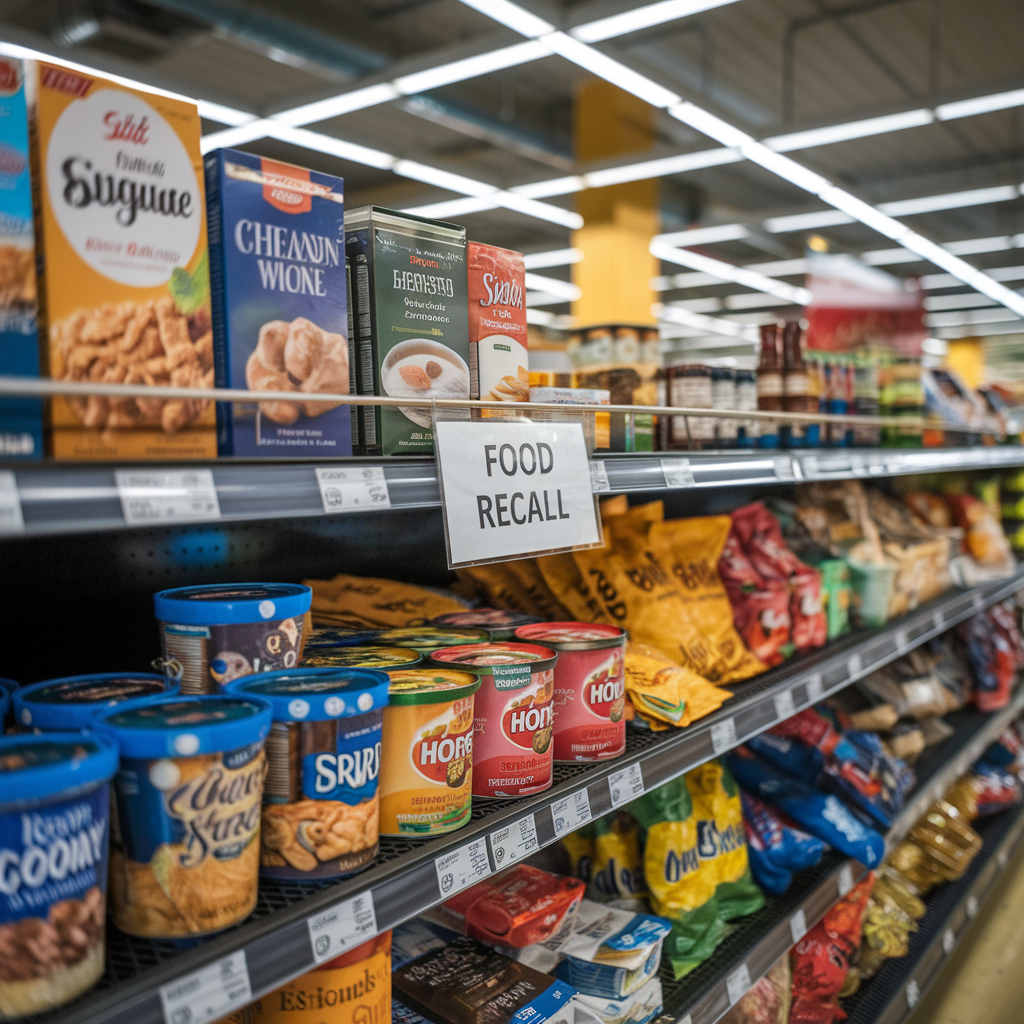Introduction
Aldi Cheese Recalls has built a reputation as a budget-friendly grocery store offering quality products at affordable prices. However, like any major retailer, Aldi Cheese Recalls is not immune to food recalls. Recently, certain Aldi Cheese Recalls products have been recalled due to safety concerns, sparking consumer worries. What exactly happened, and how can you ensure your cheese is safe? Let’s break it down.
Understanding Food Recalls

What is a Food Recall?
When a product is taken off shop shelves because of safety concerns, it is known as a food recall. These issues could be brought on by contamination, incorrect labeling, or allergies that aren’t disclosed.
Common Reasons for Food Recalls
contamination by bacteria (Salmonella, E. coli, Listeria)
Unnatural items in food
Unreported allergies (such as gluten, dairy, or nuts)
Errors in packaging that could deceive customers
Impact of Recalls on Consumers
Panic can result from food recalls, particularly if the product is consumed in large quantities. Allergies and food borne infections pose the greatest hazards.
Aldi’s History with Food Recalls
Similar to other supermarket businesses, Aldi has previously experienced food recalls. Inaccurate labeling was the cause of some recalls, while possible contamination was the cause of others. Aldi Cheese Recalls has strengthened its quality control procedures in an effort to increase food safety in spite of these instances.
Recent Aldi Cheese Recalls

What Cheese Products Were Recalled?
Aldi Cheese Recalls recently recalled some of their cheese products because of the possibility of contamination. Among the impacted products are:
Camembert and Brie cheeses
Mixtures of shredded mozzarella and cheddar
Cheeses in prepackaged slices
Why Were These Aldi Cheese Recalls?
After testing revealed the presence of Listeria monocytogenes, a pathogen that can cause serious disease, the recall was announced. Food poisoning can result from eating tainted cheese, particularly in susceptible groups like expectant mothers, the elderly, and people with compromised immune systems.
Health Risks Associated with Contaminated Cheese

Bacterial Contamination
Listeria monocytogenes: can result in serious infections and flu-like symptoms.
Salmonella: causes diarrhea, vomiting, and nausea
E. coli:causes serious digestive problems and stomach discomfort.
Allergens and Undeclared Ingredients
Inaccurate labeling is the cause of certain recalls, which can be harmful to those who have dietary sensitivities.
Symptoms of Foodborne Illnesses
If you have consumed recalled cheese, be aware of:
Vomiting and feeling queasy
Diarrhea and nausea
Chills and fever
How to Check If Your Aldi Cheese is Recalled

To find out if the recall applies to your cheese:
Verify the expiration dates and batch numbers.
Check for the UPC codes that Aldi Cheese Recalls has provided.
Go to the official recall website for Aldi.
Steps to Take If You Have Recalled Cheese
Avoid eating it. It can be dangerous to eat recalled cheese.
Give it back to Aldi. Without a receipt, the majority of retailers provide complete returns.
Get rid of it properly. To avoid contamination, wrap the cheese tightly before throwing it away.
Consumer Safety Measures
Register for FDA and USDA recall alerts.
Cheese should be carefully stored to avoid spoiling.
Always look for allergies and expiration dates on labels.
Aldi’s Quality Control and Future Prevention
Aldi Cheese Recalls has pledged to follow more stringent guidelines for food safety, which include:
Inspections of suppliers more frequently
More stringent quality assurance testing
Improved recall notification methods for customers
Consumer Reactions and Public Response

Reactions to Aldi’s recall went viral on social media. Some consumers were irritated, but others valued Aldi’s openness and promptness.
Comparison with Other Grocery Chains
The recall procedure used by Aldi is comparable to that of rivals Walmart and Kroger. Nonetheless, buyers can obtain refunds more easily because of Aldi’s no-questions-asked return policy.
Legal Aspects of Food Recalls
In the US, food recalls are governed by the FDA and USDA. Additionally, consumers who are harmed by tainted food have legal rights and can take action.
Conclusion
Although food recalls are a severe problem, Aldi Cheese Recalls has taken appropriate measures to protect consumers. Return any impacted cheese right away, and keep up with any recalls that may occur in the future.
FAQs
1. How often does Aldi Cheese Recalls food products?
Although they are uncommon, recalls do occur occasionally when safety issues are raised.
2. Can I return recalled cheese without a receipt?
Yes, even without a receipt, Aldi Cheese Recalls offers complete returns.
3. What are the most common bacteria found in recalled cheese?
The most prevalent ones are Salmonella, E. coli, and Listeria.
4. How does Aldi notify customers about recalls?
Recall notices are posted by Aldi on its website, in-store, and occasionally by email.
5. Are all Aldi cheeses affected by the recent recall?
No, the recall was limited to particular types and batches. To be certain, consult the recall list.


























































